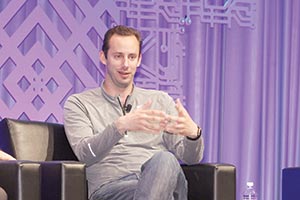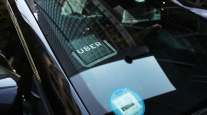Uber Tells Court That Otto's Self-Driving Sensors Aren't Stolen From Google

Uber Technologies Inc. has an alibi for Alphabet Inc.’s allegations of trade-secrets theft — the ride-hailing company’s driverless car technology is completely different from its rival’s designs.
Uber is trying to persuade a judge not to issue an order that might stall the development of its autonomous driving technology and possibly even sideline the head of the project, engineer Anthony Levandowski.
In asserting its key defenses publicly April 7 for the first time, six weeks after Waymo sued, Uber argues it’s been wrongly accused. It doesn’t even possess thousands of files of proprietary information Waymo says it stole and wouldn’t need them to advance its own self-driving vehicle program, as it’s relying on an in-house design with radically different features than Waymo’s, according to a court filing.
“Waymo’s injunction motion is a misfire: There is no evidence that any of the 14,000 files in question ever touched Uber’s servers, and Waymo’s assertion that our multilens lidar is the same as their single-lens lidar is clearly false,” Uber’s associate general counsel, Angela Padilla, said in a statement.
Waymo alleges Levandowski plotted his betrayal to Uber while he was still an executive at the Google unit. He and two other Waymo employees are accused of downloading thousands of confidential files, including lidar circuit board designs, before he left Waymo last year and launched his own self-driving truck startup, Otto, that was acquired by Uber for $680 million.
Waymo said April 7 that Uber’s assertion it never has touched the 14,000 files is “disingenuous at best, given their refusal to look in the most obvious place: the computers and devices owned by the head of their self-driving program.”
“We’re asking the court to step in based on clear evidence that Uber is using, or plans to use, our trade secrets to develop their lidar technology, as seen in both circuit board blueprints and filings in the state of Nevada,” the company said in a statement.
U.S. District Judge William A. Alsup has repeatedly admonished Uber and Levandowski in court hearings for being unwilling or unable to flatly deny Waymo’s allegations.
The judge said this week he’d never seen a stronger record in 42 years and warned Uber’s lawyers that they’re “up against it," meaning that he’s leaning toward issuing a court order that would prohibit the use of the disputed technology. At one pointl Alsup warned he might go as far as to bar Levandowski from working on Uber’s program until the litigation is resolved.
Waymo claims Uber is relying on secrets pillaged by Levandowski to design its own lidar — a critical component for making self-driving cars operational. In its defense, Uber said it began its lidar development in 2015, before Levandowski joined, and with staff that didn’t come from Waymo. Uber said its in-house lidar design was set by its roboticist, Scott Boehmke, who named the project “Fuji," according to the April 7 filing.
Boehmke worked alongside engineers who came from Tyto Lidar, a company that joined Uber with Levandowski. However, Uber claims Tyto didn’t include any former Waymo staff.
Waymo offered a different take on Tyto’s origins in a court filing this week: It said Levandowski secretly formed Tyto in 2014 while he was working for Waymo.
Lidar sensors bounce light off objects to create a three-dimensional map of a car’s surroundings. Uber said its Fuji lidar design has four lenses — two for transmitting light and two for receiving, while Waymo’s lidar has a single shared lens that both sends and receives light.
Waymo says its suspicions were bolstered when it learned Otto told the Nevada motor vehicles department in September that its self-driving trucks relied on a custom lidar system. Uber now says it clarified the filing to explain that the Otto vehicles didn’t have lidar at all.
“To hinder Uber’s continued progress in its independent development of an in-house lidar that is fundamentally different than Waymo’s, when Uber has not used any of Waymo’s trade secrets, would impede Uber’s efforts to remain a viable business, stifle the talent and ingenuity that are the primary drivers of this emerging industry, and risk delaying the implementation of technology that could prevent car accidents,” Uber said in the April 7 filing. “Ultimately, that would be harmful to the public.”
In other developments in the case this week:
- Waymo claimed that Levandowski breached his contract by recruiting from its ranks for Otto while collecting more than $120 million in incentive payments from the search giant.
- Alsup learned Levandowski may not testify in the case by asserting his rights under the Constitution’s Fifth Amendment, protecting a person from self-incrimination. Levandowski, who wasn’t named as a defendant in the lawsuit, has cited the possibility of a criminal case against him and urged the judge not to force Uber to turn over records to Waymo that might incriminate him.


